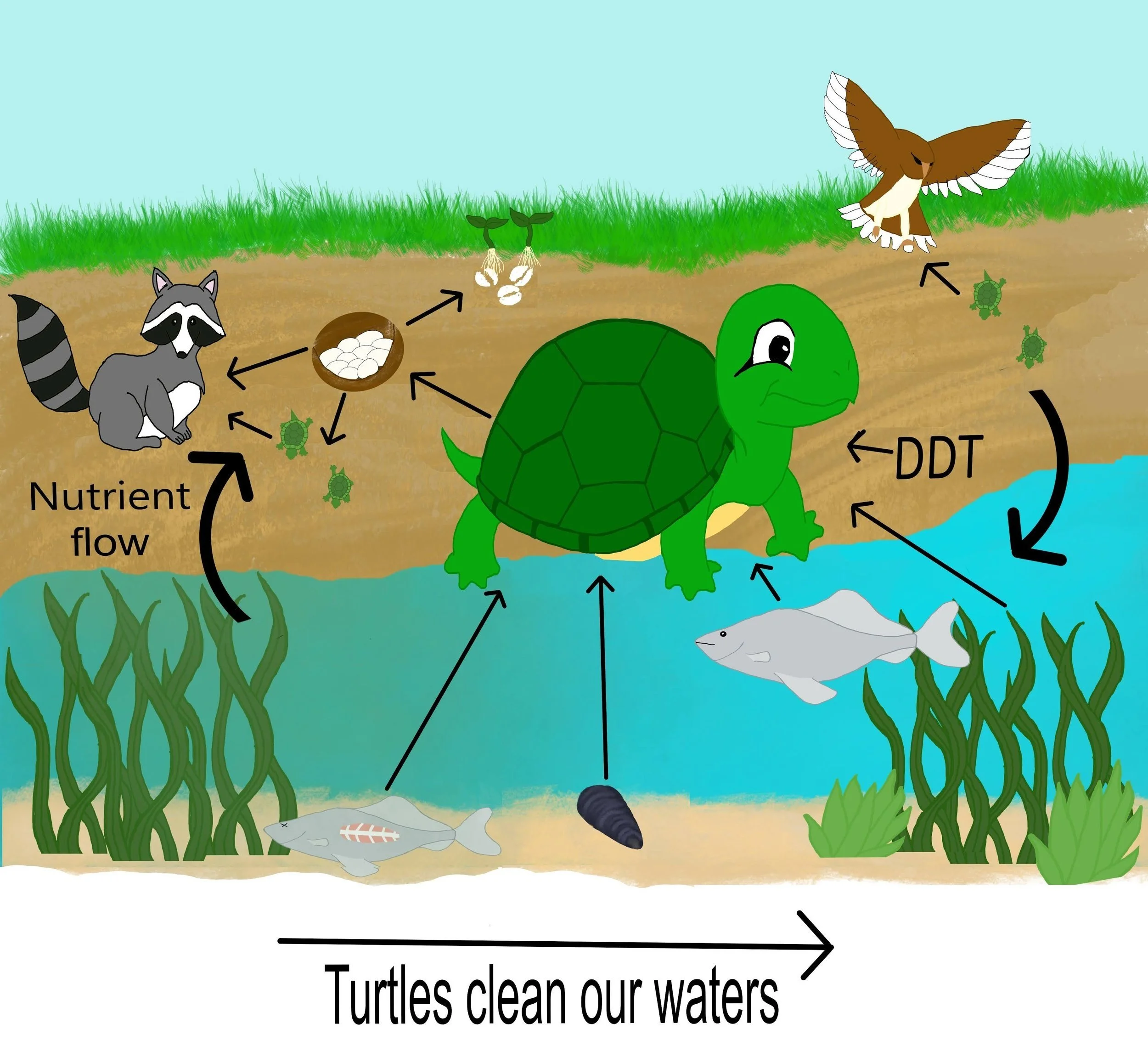Why Turtles Matter
Thank you to Abbie Miolee for guest authoring this month’s blog post.
Introduction
For various reasons, turtles are loved around the world. From an ecological lens, their significance stems from their impact on aquatic ecosystems as a keystone species. From a cultural perspective, turtles are known for their prominence in the creation stories of many Indigenous peoples as they symbolize wisdom, longevity, and connection to the spirit realm.
Ecological Significance
You may know that many turtle species are keystone species (species that other species rely on for survival and that has significant impact on their ecosystem), but do you know why?
From seed dispersal to nutrient cycling, they play vital roles in maintaining a healthy ecosystem. By consuming algae, plants, and dead fish, turtles help regulate the levels of vegetation and microorganisms so that plant life and animal life can coexist in harmony. Without turtle nutrient cycling, we would see eutrophication - the excess growth of algae, bacteria, and plant life - suffocating animals as oxygen levels are depleted by algal decomposition. In addition to decaying fish and plants, turtles eat fruit and seeds, thus supporting biodiversity as they spread these seeds across the land and water through their feces. In these ways and more, you can find freshwater turtles taking care of their lake, pond, river, or wetland habitat as it takes care of them.
Cultural Significance
Fossil records indicate that turtles are one of the oldest reptile groups in the world, and humans have been interacting with them for much of our historical existence.
Art by Barbara Bickell submitted as part of our 2024 art gallery fundraiser - Turtle Calendar: The Turtle Calendar is based on the First Nations’ knowledge that the bigger sections of the shell represent the lunar months, while the edge plates count out the days.
First Nations such as the Anishinaabe and the Haudenosaunee feature turtles - also called 'mikinaak' in Anishinaabe or 'a'nó:wara' in Ojibwe - in their sacred creation stories which have been orally shared since time immemorial. The name 'Turtle Island', referring to North America, is rooted in these creation stories in which a turtle’s back is the foundation for all life on Earth.
Thousands of miles away from Turtle Island, spiritual interpretations of turtles can also be found in many Shiva temples in Gujarat, India. Artist Rashmi Gosh, who visited these temples and features turtles in their artwork, illustrates how “just like a turtle can totally cocoon itself in its shell, a yogi when meditates cocoons himself from the world too and gets inside his meditative shell.” As Gosh describes, humans can identify with turtles.
We need land and water, we rely on our internal compasses to navigate the environment around us, and we have to be tough to survive. While these characteristics are true for many animals, turtles have a special way of embodying it.
Conclusion & Call to Action
Whether it’s for their spiritual essence or their biological brilliance, turtles are valuable creatures that need and deserve protection. With climate change, habitat destruction, and road pollution being the root causes that threaten turtle species, it is crucial that humans take action to mitigate our negative impacts on turtles and all wildlife. Why do turtles matter to you, and what will you do to help them?
Sources


